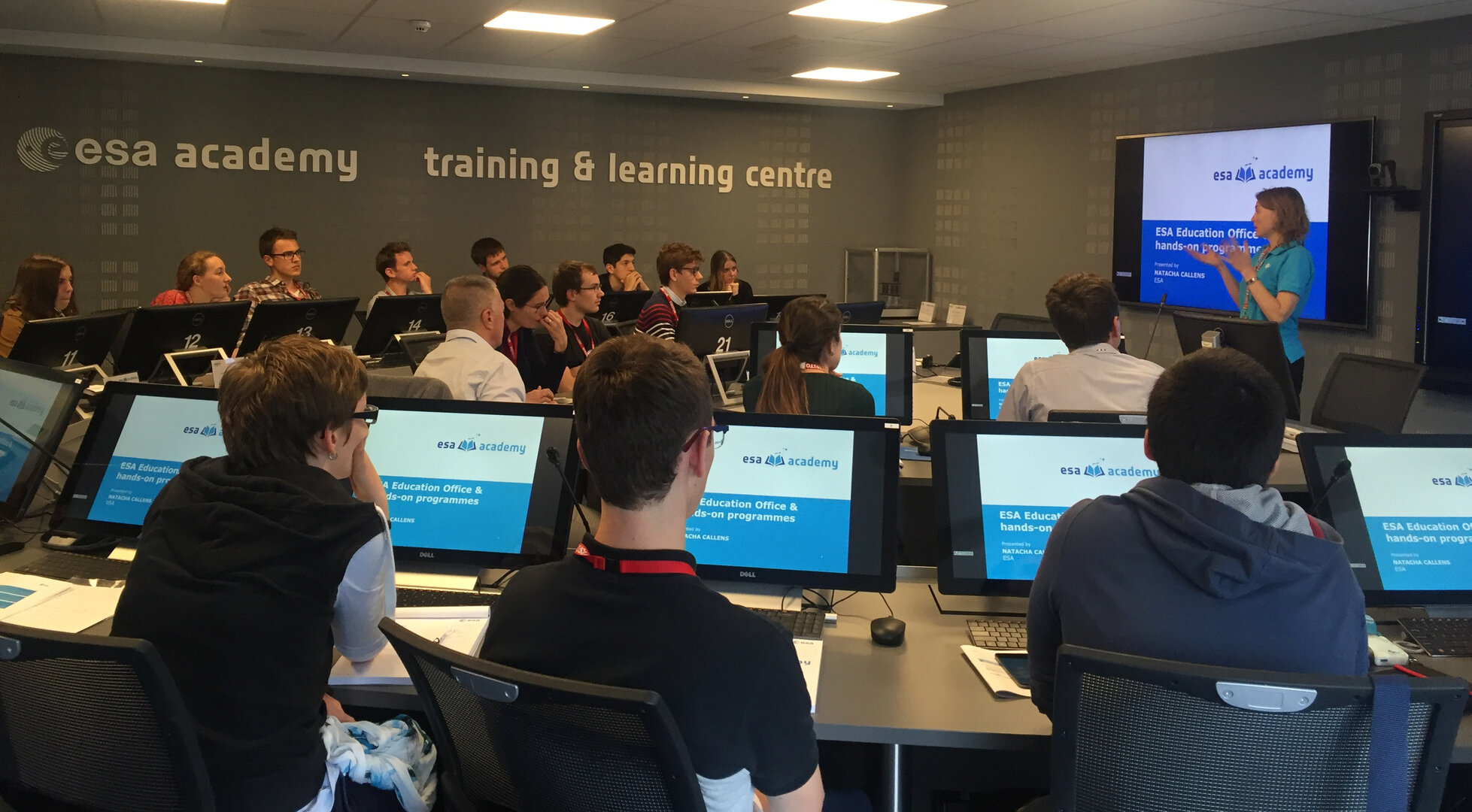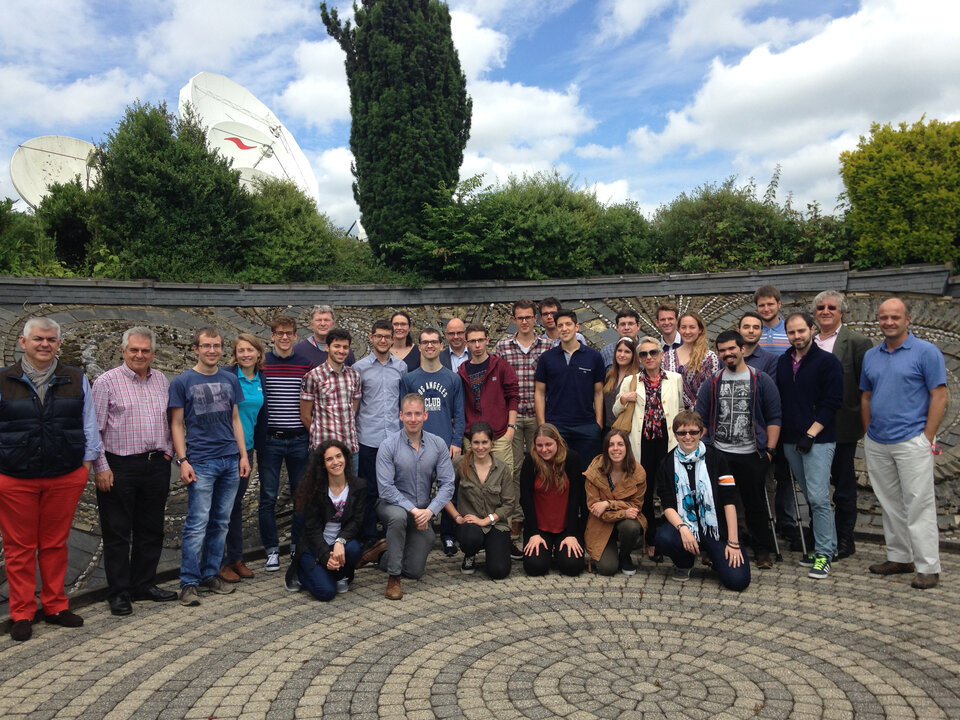ESA Academy helps summer students make light work of a heavy subject
Choosing your future job can be pretty heavy stuff. So, ESA decided to lighten the load for 22 European university students with a summer school.
Between Monday 27 June and Friday 1 July 2016, the young adults gathered at the ESA Academy Training and Learning Centre, Redu, Belgium to spend the week learning about gravity-related science.
The students were chosen from 18 different universities across 9 ESA Member States. Part of the selection criteria was that, although they were following scientific or engineering paths, they were not already involved in the space sector.
The summer school was organised by the ESA Education Office and ELGRA (the European Low Gravity Research Association). It is their first joint gravity-related research summer school to be organised, and it covered all aspect of research that plays with the strength of gravity to create novel experimental conditions.
Although the strength of gravity itself cannot be turned up and down, various techniques can be used to mitigate or enhance its effects. ESA experts explained the techniques and the life-cycle of experiments at the European Space Agency.
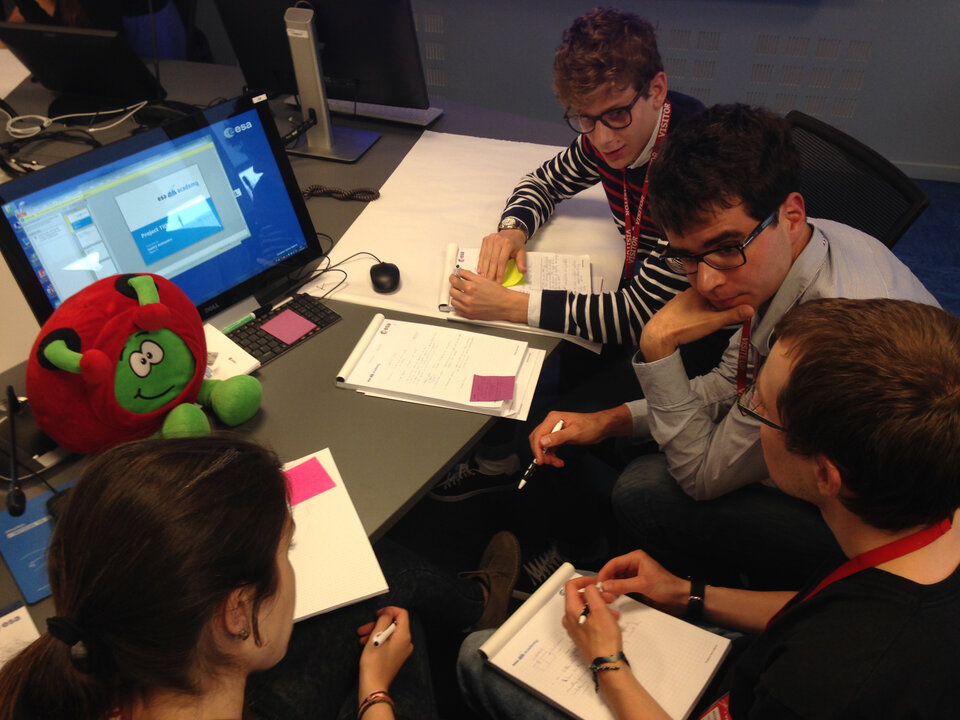
Microgravity is created in experiments that are allowed to fall freely, for example by being dropped in a capsule down an evacuated tower. At the other end of the scale, hypergravity can be created in a centrifuge that spins to create an acceleration that enhances the pull of the force.
The aim of the summer school was to introduce gravity-related research to future scientists and engineers by showing the possibilities of studies and research careers in the European space sector. Recruiting fresh talent will be essential if Europe is to continue being a world player in space.
Judging by the comments from some of the students, these goals were achieved. “A great and unique opportunity to know more about an interesting topic not explained at university. I completely recommend this Summer School,” says student Aleix París Bordas from Polytechnic University of Catalunya, Spain.
Over the course of the week, 13 ELGRA researchers from all across Europe shared their expertise. This included their backgrounds, descriptions of their day-to-day work, and the results of their gravity-related research in biology, human physiology and physics. To complete the roster of speakers, former Spin Your Thesis! and Drop Your Thesis! students presented their projects and lessons learned, and gave tips.
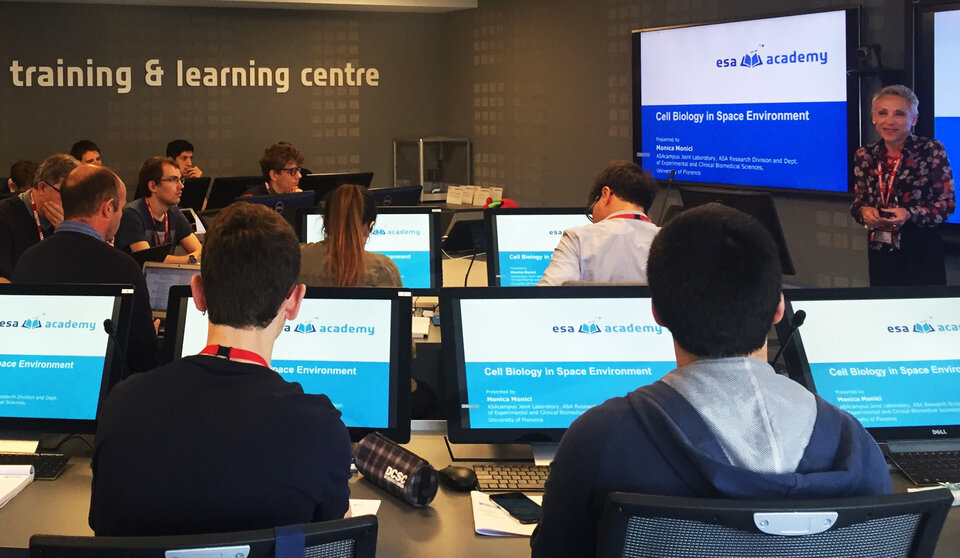
"The ESA gravity-related research summer school is a great experience. The combined presence of experts and students from various backgrounds resulted in a very informative week that increased my passion about Space even more,” says student Tim Hermans from Delft University of Technology, The Netherlands.
The students were also told by ESA representatives about the various ESA Education programmes that allow university students to develop and run their own gravity-related experiments. Each of these programmes are made in a way that mimics the running of real space projects, providing the students with invaluable experience in how the space sector works.
“The opportunity to meet and work with students from different disciplines and countries has been an incredibly unique experience. I highly recommend attending the ESA/ELGRA Gravity-Related Research Summer School to anyone with a budding interest in space science. It's been a really fantastic week filled with many fun and interesting activities, enjoyed alongside some great people,” says student Rebecca Diez from University of Warwick, UK.
When not in the lecture room, the students got to visit a number of professional space establishments to further open the window into the world of space.
First was the one on their doorstop, the ESA Redu Centre, which is one of the agency’s tracking stations. Here they learnt about ESA’s operational activities as well as about the experimental Proba and navigational Galileo programmes.
Next on the itinerary was the Euro Space Centre, a science museum and educational tourist attraction devoted to space science and astronautics. Finally, the Centre Spatial de Liège, which is an applied research centre owned by the University of Liège. Here the work is focused on design, integration and calibration of space instrumentation.
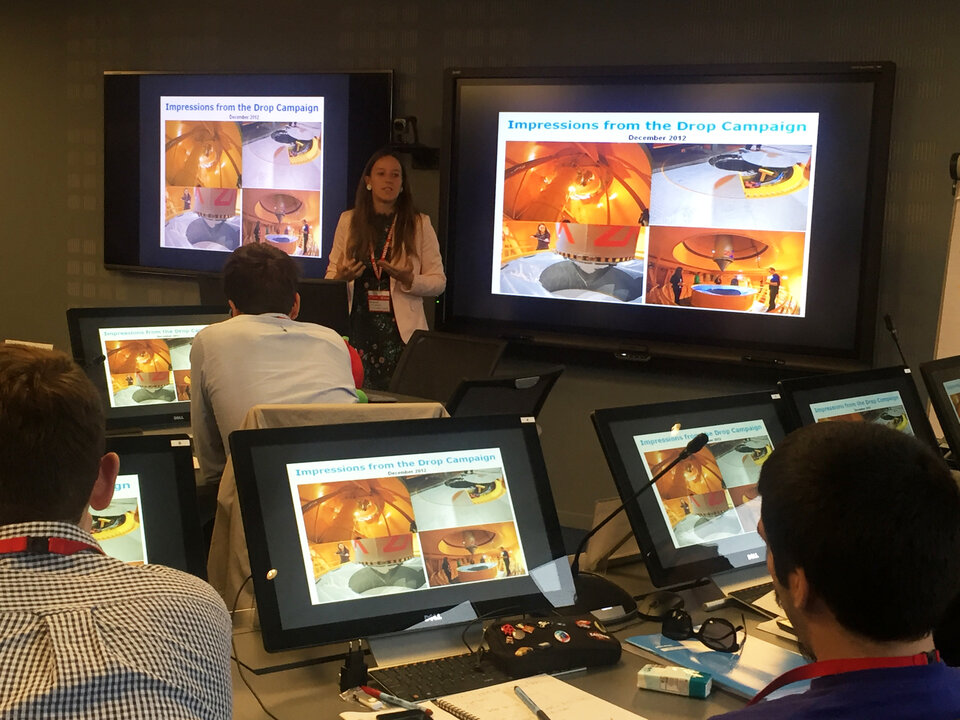
“This summer school gave me the opportunity to discover a new field of space research and engineering through passionate experts and students. Finally it gave me the chance to work inside a team of students from different countries and backgrounds on a concrete project," says student Guillaume Thirion from National School of Civil Aviation, France.
The final task for the students was to form teams of 4 and 5 and come up with an idea for future gravity-related experiment that could be performed on a microgravity or hypergravity platform, or even on the International Space Station itself.
“One of the best parts about the school was how international it is. It is rare to have a mix that is truly varied – even when something is open to all nationalities, one tends to dominate. This was not the case at ESA, where truly interested and intelligent students from all over Europe came together,” says student Adriaan Hilbers from University of Oxford.
“A well organised, highly sophisticated and well accomplished procedure of awareness, knowledge, science, fun and social activity. In these difficult times, sponsored educational programmes by ESA are more than welcome, they are needed,” says student Vlachopoulos Odysseas from University of Peloponnese, Greece.
The value of the experience was not lost on the organisers either. “Creating moments of inspiration, community and curiosity, the ESA/ELGRA summer school has been a wondrous week, one that I am grateful to of been part of. Watching students being enthused each day, passionate about pursuing both answers and questions is truly what great educational experiences are made of,” says Philip Carvil, of SELGRA (the student association of ELGRA).
As the students returned home, it was in the knowledge that this may not be the last time they work for ESA or European space industry again.


